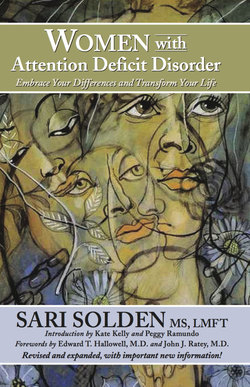Читать книгу Women With Attention Deficit Disorder: Embrace Your Differences and Transform Your Life - Sari Boone's Solden - Страница 31
На сайте Литреса книга снята с продажи.
Basic Treatment
ОглавлениеThe cornerstone of treatment for AD/HD is medication, usually stimulant medication, which is increasingly combined with other medications such as anti-depressants. While low levels of serotonin are linked with clinical depression and treated for that reason, antidepressant medication increases the availability of the serotonin neurotransmitter in the brain, which is why stimulant medications are known to increase the production of the two neurotransmitters, Dopamine and Norepinephrine, associated with AD/HD symptoms by boosting their levels into the normal range. Joseph Carver, Ph.D. in his article called Attention Deficit Hyperactivity Disorder found on his website www.drjoecarver.com describes it as follows: “If we imagine using a ‘dipstick,’ like the dipstick used to check oil/transmission fluid levels in our automobile, we might be able to check the neurotransmitter levels in our brain, finding which neurotransmitters are low, within the normal range, or high. “Medication is thought to improve the transmission of messages in the brain through the neurotransmitters.”
While medication has proved to be quite effective in reducing many of the primary symptoms of AD/HD, it is just the first step. Education, support, strategies, coaching, and organizing can all play important roles in long-term successful outcomes. Counseling can also be extremely helpful in addressing how people think about their AD/HD and what they think about themselves.
